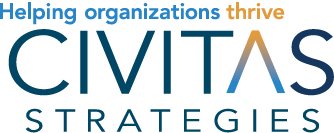When You Need to Educate Your Tax Preparer
What do you do when you know more about the tax laws affecting your family child care business than your tax preparer - but your tax preparer won't listen to you?
This is happening to a family child care provider from New York. She filed an extension on her 2011 taxes and her tax preparer is trying to calculate her Time-Space Percentage. She has several rooms in her home used exclusively for her business (garage, playroom, nursery, and basement storage room filled with games, toys and supplies). She also has rooms she is using regularly for her business.
Her tax preparer told her that she can only count her exclusive use rooms when filling out IRS Form 8829 Expenses for Business Use of Your Home and that after doing so she would owe $1,700 in taxes. She called me for advice. I told her to explain to him that the instructions to Form 8829 describe how to calculate the Time-Space Percentage when a child care provider has both exclusive use rooms and rooms regularly used for business.
After talking with her tax preparer she called me back to say he insisted she could not count her regularly used rooms and that he would not read the instructions. I advised her to have the tax preparer call me. When he did he defended himself by reading from Form 8829, line 1: "Area used regularly and exclusively for business." Therefore, he said, she could not count her rooms that were only regularly used. I told him to read what immediately followed: "regularly for daycare." In other words, there are two different types of rooms that a family child care provider might have: rooms used "regularly and exclusively" for their business and rooms only used "regularly."
When child care providers have both type of rooms they must calculate their Time-Space Percentage by following a formula described in the instructions to Form 8829, page 2 under the heading "Special Computation for Certain Daycare Facilities."
It took me a while to convince the tax preparer that he was wrong, but finally he acknowledged what I was saying and agreed to redo the child care provider's tax return, resulting in tax savings of over $500.
What's disturbing about this story is that the child care provider knew the IRS rules, but her tax preparer didn't. And her tax preparer refused to listen to her, even when she pointed out where the correct answer could be found in an IRS publication. In addition, this tax preparer does tax returns for many other child care providers, so I assume he is making the same mistake with them.
This is an example of an IRS rule that is different for every other business except family child care. Every other home-based business can only count rooms used "exclusively" for their business. Family child care providers are the only business that can count rooms used "regularly" as well as those used "exclusively."
Unfortunately, some tax preparers don't fully understand all the unique rules affecting family child care. When this happens, you may have to spend some time educating your tax preparer. Do not assume that your tax preparer is always correct. If you have questions, ask them. If you think your tax preparer is mistaken, ask for clarification. Ask to see something in writing from the IRS that supports the tax preparer's position. If you are aware of an IRS publication that supports your point of view, share it. If your disagreement is over a minor matter you may want to let it go. We all make mistakes (including me).
However, when the issue involves hundreds of dollars you should not give up until you are convinced by something in writing that you are wrong. In the end, if your tax preparer can't convince you with a written authority, and you are not comfortable with what he or she is saying, it may be time to change your tax preparer.
Tom Copeland - www.tomcopelandblog.com
Image credit: https://www.startribune.com/minnesota-tax-day-pushed-back-to-july-15/569038632/
For more information about the Time-Space Percentage, see my book Family Child Care Record Keeping Guide.

